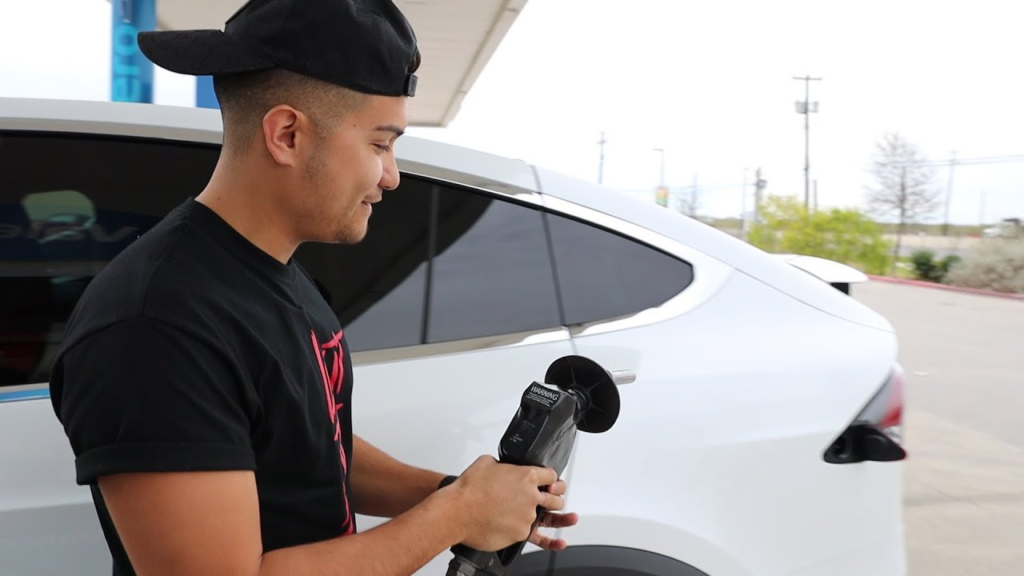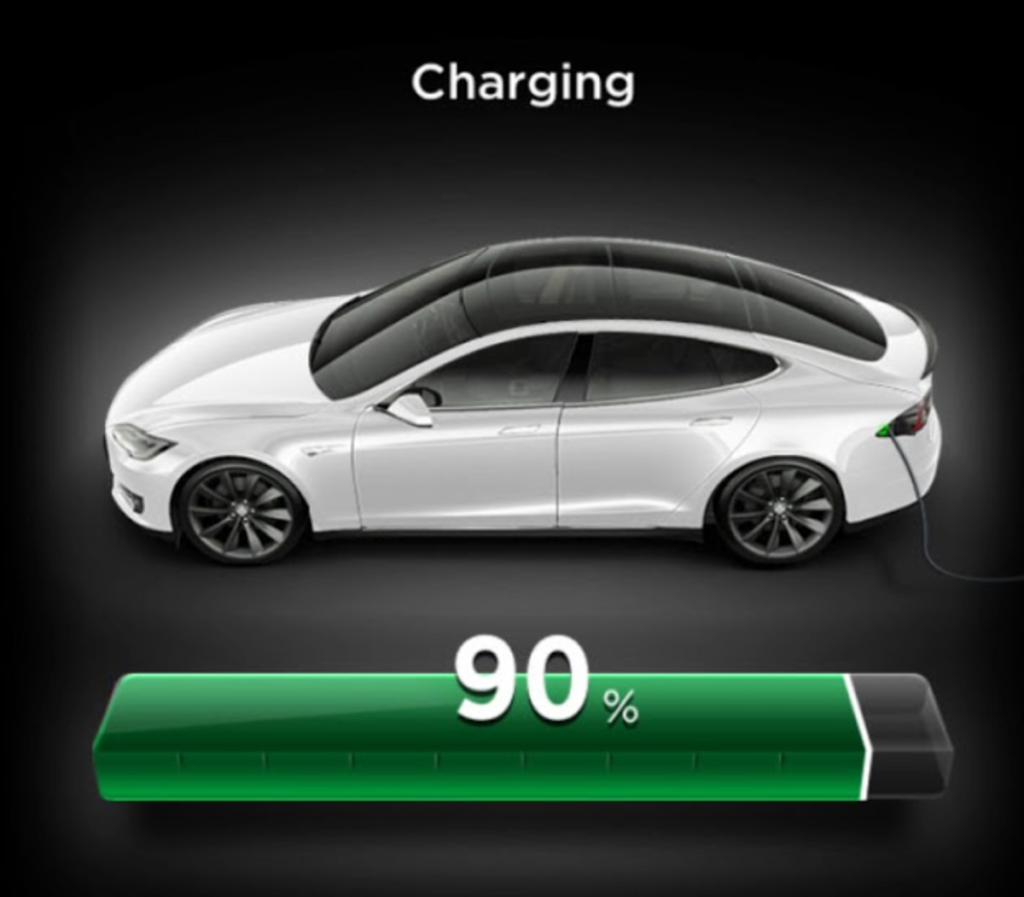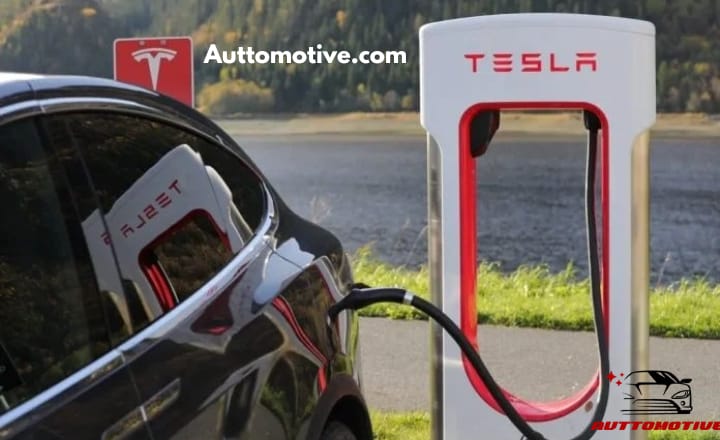Tesla Motors has been developing a revolutionary new transportation system that uses electric energy to run cars. The company is soon going to release a car that runs on gasoline, and many people are wondering if this new technology is better for the environment or not. Their electric cars run on gasoline and can travel up to 150 mph. They are currently being test-driven in Nevada and have received positive feedback. In this article we will explore the answer to this question Does a Tesla Car Run on Gas Too?
Does a Tesla Car Run on Gas Too?
Tesla is revolutionizing the automobile industry with its electric cars, but what fuel does it substitute for Tesla? The answer lies in the car’s battery pack. Tesla vehicles are powered by rechargeable lithium-ion battery packs that can be charged through an electrical outlet or at one of Tesla’s supercharging stations. These batteries have a longer lifespan than traditional car batteries and are designed to last for up to 300,000 miles.
To being more sustainable and environmentally friendly than gas-powered cars, Tesla’s use of electric power also offers significant cost savings for drivers. According to Tesla’s website, the average cost to charge a Model S or Model X is about $15-18 per 100 kWh. This equates to an average cost of about $0.10 per mile driven, which is significantly lower than the cost of gasoline-powered vehicles.
Does Tesla use Gas Stations?
When it comes to electric vehicles, Tesla is one of the most well-known brands in the market. With its sleek design and innovative technology, Tesla has revolutionized the way we think about transportation. Many people still wonder: does Tesla use gas stations?
The answer is no. Unlike traditional cars that run on gasoline or diesel, Tesla is powered by electricity. This means that they do not need to be refuelled at a gas station like a typical combustion engine car would. Instead, Tesla can be charged at home using a charging station or wall outlet.
Superchargers

The company has developed its network of “Superchargers,” which are high-speed charging stations located across North America, Europe, Asia-Pacific, and the Middle East. These Superchargers can provide up to 170 miles of range in just 30 minutes of charging time.
Tesla’s Supercharger network is vital for long-distance travel as it provides drivers with ample opportunities to recharge their batteries on the go quickly.
NEMA adapters
Tesla also allows its users to purchase NEMA adapters which make it possible for them to plug into 110-240V outlets at home or in public areas like hotels and shopping centres.
One benefit of using NEMA adapters is that they provide convenience and flexibility for EV owners who do not have access to Supercharger stations.

Does a Tesla Car run on GasToo?
Many people still wonder Tesla cars run on gas too. The answer to this question is a resounding “no.” Tesla cars do not use any gasoline or diesel fuel to operate. They rely solely on electricity from their batteries. This means that drivers never have to worry about stopping at a gas station or experiencing fluctuations in gas prices.
- One major advantage of Tesla’s all-electric power train is that it produces zero emissions, which makes it an environmentally friendly option for drivers who are concerned about reducing their carbon footprint.
- Tesla’s electric motors provide instant torque and acceleration, making them extremely fast and fun to drive.
What Occurs When you Fuel a Tesla?
When you fuel a Tesla, it’s not like refuelling a traditional gas-powered vehicle. Instead of pumping gasoline into the tank, you’ll be plugging your electric car into a charging station.

The process is simple:
- Pull up to the charging station,
- Plug in your car,
- Wait for it to charge.
Pull up to the Charging Station.
Pulling up to a charging station is an experience unlike any other. From traditional gas stations, drivers are accustomed to waiting in long lines and breathing in fumes from gasoline-powered cars. Tesla charging station, it’s a different story altogether. You can pull up to one of their Superchargers and be on your way in no time.
Plug in your car.
When you plug in your Tesla, a series of events occur that ultimately result in a fully charged battery. The process begins when you insert the charging cable into the car’s charge port. The vehicle’s onboard computer then communicates with the charging station to determine how much energy is needed to fill up the battery.
Wait for it to charge.
Once you arrive at the charging station, you’ll need to wait for it to charge typically anywhere from 30 minutes to an hour or more depending on the type of charger and how much battery life you have left. While this may seem like an inconvenience at first glance, many electric vehicle owners find that charging pit stops can be quite enjoyable. Some charging stations are located in scenic areas where drivers can explore nearby attractions while waiting for their car’s battery to recharge.

Advantages of Driving and Electric car
- One of the biggest advantages of driving an electric car like a Tesla is that you can charge it at home overnight while you sleep.
- This means that in the morning, your car will be fully charged and ready for whatever adventures await.
- If you’re on a long road trip or need to top off during the day, there are plenty of public charging stations available across the country.
- Charging times vary depending on factors such as how much battery life remains in your vehicle and what type of charger you’re using.
Can Tesla use Both gas and Electricity?
can you use gas and electricity in Tesla. The answer to this question is quite simple – no, Tesla cars are solely powered by electricity.

Tesla’s mission has always been to accelerate the transition to sustainable energy, and its electric vehicles are an important part of that mission. These cars are designed with high-performance electric motors and long-range batteries that allow for efficient travel without any emissions. Tesla believes that gasoline-powered engines will eventually become obsolete as more people switch to electric vehicles.
While some may argue that gas-powered cars provide more convenience when it comes to refuelling and long-distance travel, Tesla’s Supercharger network has made it possible for drivers to recharge their vehicles quickly along major highways and city centres.
Conclusion
In the above paragraphs we have discussed this question Does a Tesla car run on gas too? The answer to this question is not definite, but it does seem that Tesla cars run on gasoline. This is because Tesla offers the Model S and Model X that use solar power to run on battery power, meaning that there is no need for gas. If you choose to buy a Tesla car that runs on gasoline, it is important to be aware of the possible drawbacks and make sure to research them before buying.
Frequently Asked Questions
Has Tesla got a backup fuel supply?
Tesla has a backup fuel supply in the event of an emergency. This would include gasoline, diesel, or LNG.
Are electric vehicles gas-powered?
The truth is that electric vehicles do not run on gasoline, but rather on electricity. Unlike traditional gas-powered cars which require frequent trips to the gas station, electric vehicles can be charged at home or public charging stations. This means lower fuel costs and fewer emissions released into the environment. because they don’t have an internal combustion engine like gas-powered cars do, electric vehicles operate much quieter and with less vibration.
Are there gas tanks in Tesla?
The answer is a resounding no. Unlike traditional cars that run on gasoline or diesel fuel stored in a tank, Tesla runs entirely on electricity stored in an onboard battery pack. This means there is no need for a gas tank, or any other components associated with traditional engines like carburettors or exhaust systems.

